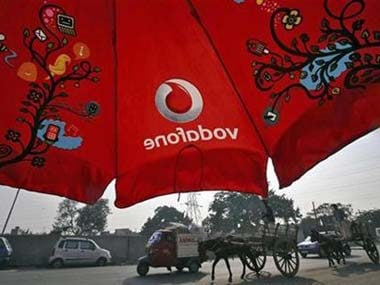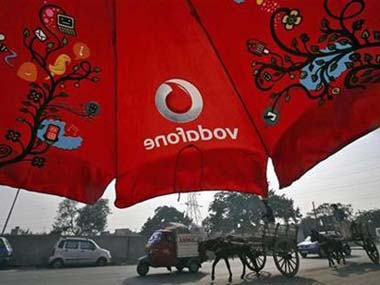By R Jagannathan
Is Vodafone off the hook? Prima facie, it should be. If the recommendations of the Parthasarathi Shome committee on retrospective amendments relating to the indirect transfer of assets are any guide, Pranab Mukherjee’s efforts to nullify the effect of a Supreme Court judgment on Vodafone will now be counter-nullified.
The case runs like this: Vodafone bought the Indian operations of Hutchison Essar in 2007 entirely through an offshore deal. The Indian taxman thought this was an attempt to evade capital gains tax, and asked Vodafone to pay the tax that it failed to deduct at source on Hutchison’s capital gains. But the Supreme Court said our laws don’t allow us to tax offshore deals, and Mukherjee promptly changed the law - retrospectively - in the 2012-13 budget to make sure that Vodafone will pay up.
The retro tax scared the daylights out of many investors. And Shome now says that all efforts to tax indirect transfers should be prospective: which means Vodafone is safe. And even if the law must be made retrospective, the tax must be levied on the party making the capital gains (i.e. Hutchison); and no penalty or interest must be collected even in this case. Once again, Vodafone should be safe. But Hutchison may have to pay the original tax demand (around Rs 8,000 crore) - assuming it can be persuaded to do so. The other day the finance minister told the Economic Editors’ Conference that the law could be changed even before the next budget.
The nub is this: if the law is prospective, both Vodafone and Hutchison can rest easy. If the government decides to accept the second option - making it retrospective, but to go after the one making the gains - it means the target will be Hutchison.
[caption id=“attachment_486200” align=“alignleft” width=“380”]
 if the law is prospective, both Vodafone and Hutchison can rest easy. If the government decides to accept the second option - making it retrospective, but to go after the one making the gains - it means the target will be Hutchison.[/caption]
if the law is prospective, both Vodafone and Hutchison can rest easy. If the government decides to accept the second option - making it retrospective, but to go after the one making the gains - it means the target will be Hutchison.[/caption]
But it may not be that simple. In fact, this proposal may give both Vodafone and Hutchison sleepless nights because a key element relates to what the two had agreed on taxes. So far, neither of them has talked about it. And Vodafone has been hinting it may pay the tax in a compromise deal that excludes penalties and interest.
Impact Shorts
More ShortsSo what’s going on?
An answer may lie in the fine print of the Vodafone-Hutchison deal. Speaking to Business Standard some months ago, then Finance Secretary RS Gujral - the key bureaucrat behind the retro tax - said his understanding was that Vodafone got a lower price for agreeing to pay the tax.
Gujral, who has since been shunted to the expenditure department under Chidambaram, defended the retrospective tax then with this statement: “In their own wisdom, Vodafone took a call and remitted the payment (to Hutchison) without withholding the tax. Now, what the (tax) officers, while raising the demand, have also mentioned is, according to their information, an amount higher than the final one paid by Vodafone was offered by some other party (to Hutchison). Perhaps the difference reflects the tax amount.”
According to Gujral, Vodafone could easily have paid the tax and sought a reimbursement from Hutchison since contracts usually have clauses dealing with taxes. Said Gujral: “In normal business transactions, if a person is a buyer, he will put a clause that if any tax is levied, the seller would be liable to pay…One can seek to conclude that Vodafone, in its agreement with Hutchison, took advantage of a lower price and said any responsibility of tax was on its account. That is why Vodafone is fighting so hard.”
If Gujral is right, the only situation in which Vodafone can breathe easy is if there is no retrospective tax at all. If the tax remains retrospective, even if its rigours are eased and a decision is taken to go after Hutchison, the bill may come back to Vodafone. Is that why Vodafone has thrown hints it may settle with a lower tax?
The Economic Times reported in September the Vodafone UK is considering the need for making provisions to settle the Indian tax dispute. It will take a call by November.
Vodafone will be praying that there is no retro tax at all.
)